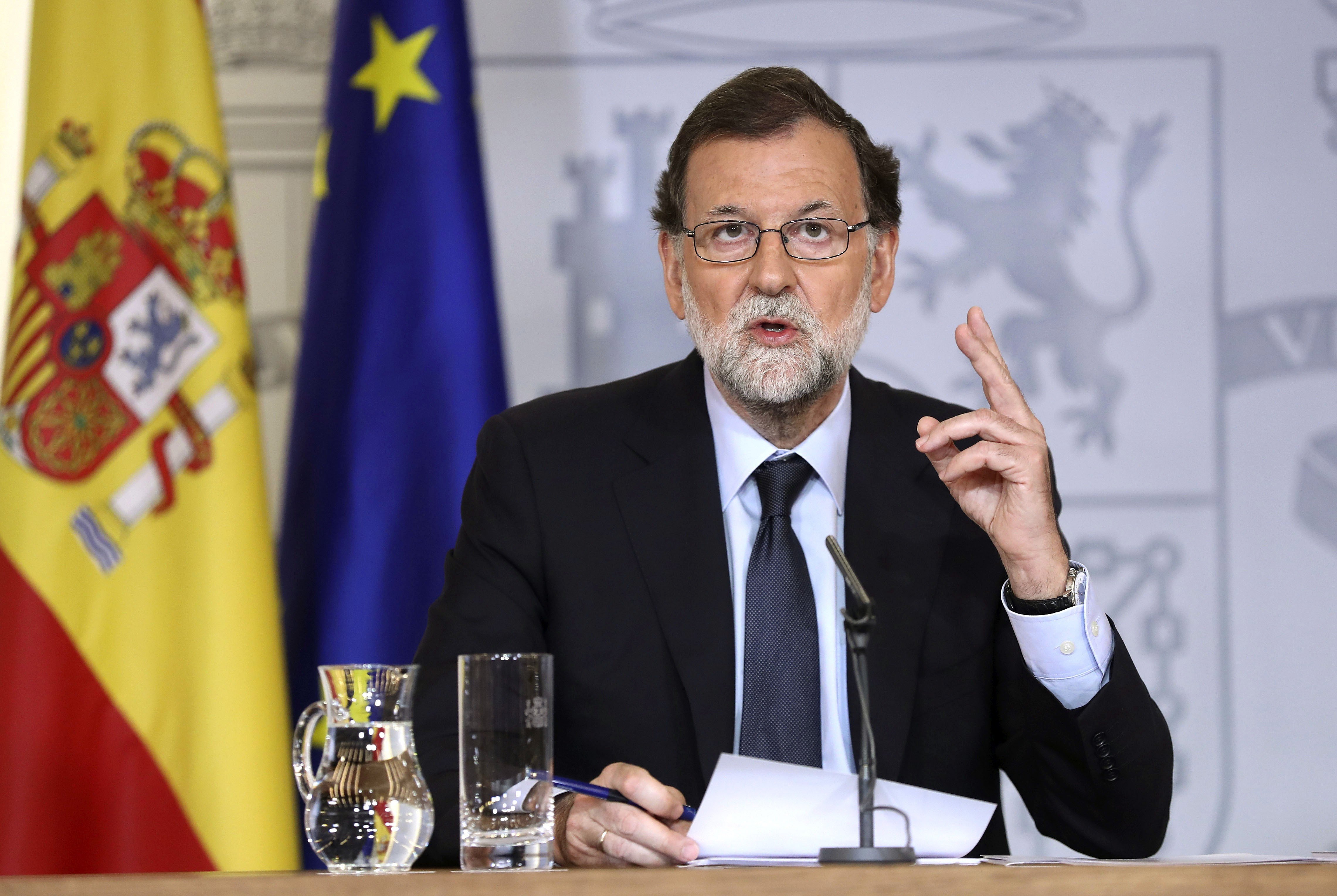"Opinions are free" said the Spanish prime minister, Mariano Rajoy, in response to the idea held by some sectors of the Catalan public that the Spanish state vanished from Catalonia in the hours following the attacks in Barcelona and Cambrils on 17th August. Rajoy decided to appear in front of the media's cameras this Friday after the Council of Ministers meeting to list each and every one of the actions taken by the central executive on the day itself and afterwords, and also to make a clear call for "political unity" between the different administrations as a means of fighting terrorism.
"The day of the attack itself everyone was there, the same thing happened on the following days. The [Spanish] government also has its opinion," said Rajoy with a half-smile of incredulity. His first public appearance was shortly after midnight, seven hours after the attack on the Rambla. But beyond this statement, the press conference was strongly evocative of the one this Monday, in which the Spanish Interior minister, Juan Ignacio Zoido, also highlighted the state's role on several occasions, as El Nacional reported at the time (in Catalan/Spanish).
The fact is that the Spanish state did not start to really appear until 18th August, but sources within the government defend the normality of this. They say that this is set out in the Statute of Autonomy, which assigns the autonomous community's government the first response to any terrorist attack. However, they recognise that this Friday's press conference was to set forth "a succession of the facts" and they accept a certain lack of coordination on both parts –both the Spanish Government and the Catalan– and police authorities.
This statement has come after it emerged that the Spanish police had investigated the Ripoll imam without telling the Catalan police (link in Catalan). Rajoy asked "that the judge be left to do their work", and said that sources suggest they shouldn't limit themselves to such reports, because there is other information currently "unknown and which form part of the whole investigation" and cover these topics.
However, Rajoy highlighted the points of "fluid and constant institutional coordination" in his speech, which he read off a sheet of paper, sitting down and looking at the camera. First, he praised the security corps, mainly the Mossos (Catalan police), "who, together with the Civil Guard and the National Police, saved the lives of many people." Secondly, he noted that the first action was the creation of a crisis committee "to reinforce the coordination between the agencies". "There were always members of the Civil Guard and the National Police" on the community, he said.
Rajoy pointed out that the Spanish and Catalan governments met and, then, he appeared with the president of Catalonia, Carles Puigdemont. "I want to highlight the maximum level of cooperation and loyalty during the meeting," he said. Later, "the vice-president [Soraya Sáenz de Santamaría] received the Foreign ministers of other countries" (link in Catalan) together with the central government's representative to Catalonia, Enric Millo and the king and queen "visited the victims".
In Europol, maybe
Rajoy left open the question of whether the Mossos could join Europol after some members of his government questioned the agreement signed in the Catalan Security Board meeting in July. "There is a system of European integration, each country of the European Union has a national office, in Spain it's led by the National Police, the Civil Guard, the Mossos and the Ertzaintza [Basque police]", he said, before avoiding anything more about the topic. "The fewer public debates about security systems, the better" he said, noting that the systems "adapt" to the times and that the "priority" is the victims.
Reform of the Criminal Code
The relating of the immediate actions taken was accompanied by some explanation about the latter decisions of the central government. First, the Interior ministry decided to maintain the terrorism warning level at 4 out of 5, after meeting with experts. Second, he noted that his government has already reformed the Criminal Code some years ago, although he didn't discount the possibility of doing so again to toughen punishments. He also said that the Interior ministry agencies had consciously worked to collect warnings about focal points of radicalisation, to serve the victims and to hurry the visa application process for their family members abroad.
"Political unity"
With the 1st October Catalan independence referendum on the horizon and the battle between PSOE (Spanish Socialist Workers' Party) and Podemos (We Can) in the Congress, Rajoy insisted on the importance of "police coordination, political unity and international cooperation" as a way to stay "big and strong against murderers". "Political unity is fundamental, it's what the victims want and should offer results in the shape of improvements," he concluded. Because of that, within his administration, they believe it necessary for all the parties in the Congress to sign the Anti-terrorist pact (ERC, PDeCAT, Podemos, PNC and EH Bildu haven't done so). Spain has also asked French president Emmanuel Macron to cover the topic in a summit to be held Monday between their two countries, Germany and Italy to improve coordination in the anti-terrorist fight.
Finally, in response to questions on the controversy over King Felipe VI's attendance at Saturday's demonstration in Barcelona, Rajoy has stood firm and, after saying that "the terrorists are the main culprits in what has happened", he rated "very positively" the king's attendance to represent those who cannot be present. Here the prime minister made a call for the whole public to attend, as a symbol of rejection of terrorism.

